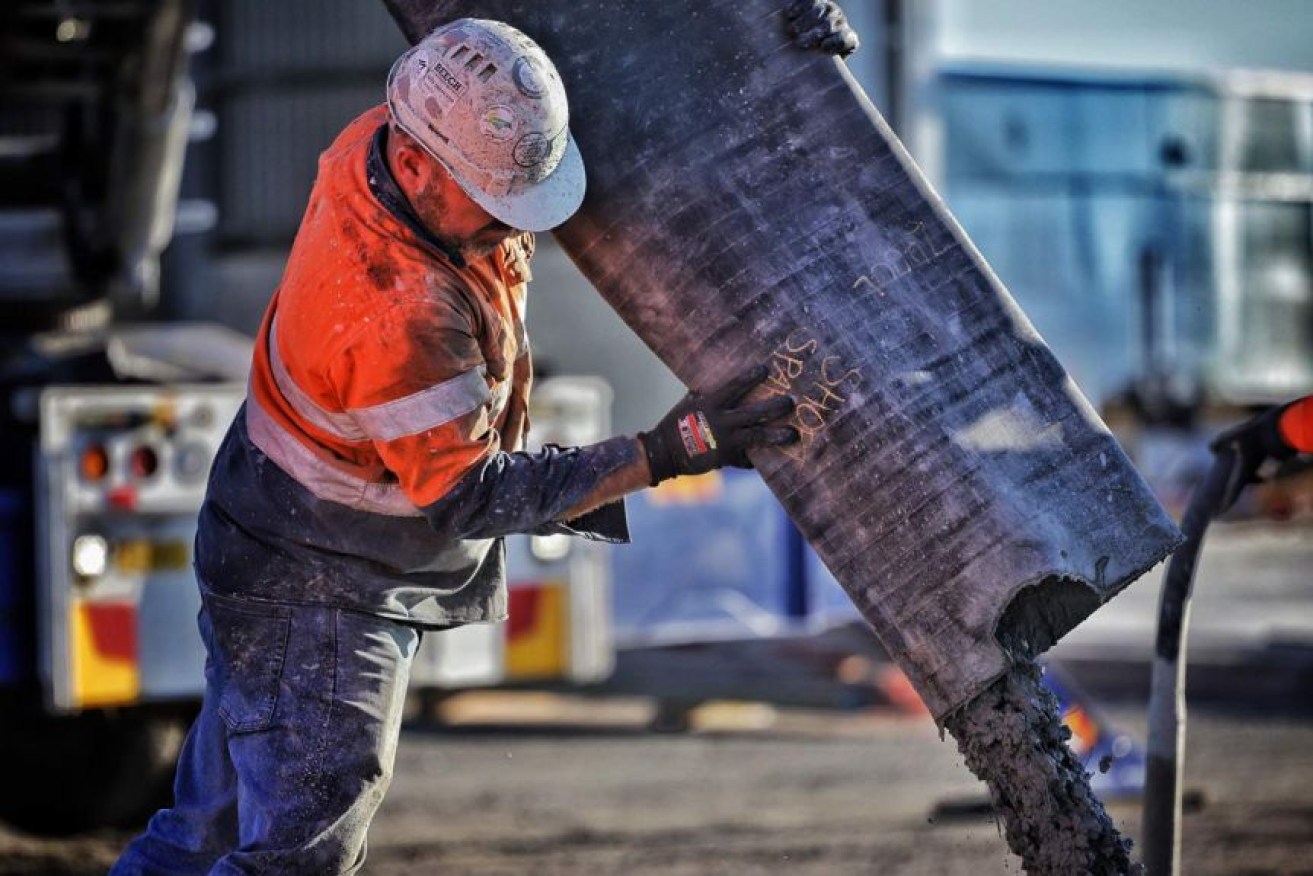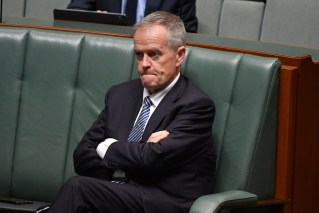Altered states: How tricks of the trades have stymied bid to cut through red tape
Attempts to introduce a national occupational licensing scheme reminds us of just how hard it is to kill off red tape writes Robert MacDonald


The report warns higher average temperatures will put labour-intensive industries such as construction at risk. (Photo: ABC News: Chris Gillette)
Why is it so hard to cut red tape?
Everyone says they hate it and every new government promises to do something about it but nothing seems to change.
To find out why, it’s worth spending a few moments on the grippingly named subject of automatic mutual recognition.
That’s bureaucrats’ language for the eminently logical idea that the 17 per cent of Australian workers who need a state-based licence to do their job should have that licence recognised around the country, not just in the issuing state.
Federal and state governments have been grappling with the problem for decades and in August last year, there appeared to be a significant breakthrough.
Treasurer Josh Frydenberg issued a media release announcing that the Commonwealth, state and territory governments had “reached agreement to develop a framework for occupational licences to be automatically recognised across jurisdictions”.
That target date for implementation was July this year.
“Tradies, including carpenters, joiners, bricklayers, builders, electricians and plumbers, as well as a raft of other licensed occupations such as teachers and property agents, could find it easier to do business across state and territory borders,” he declared optimistically.
But his use of “could” rather than “will” suggests Frydenberg knew even then it would be a challenge to bring this agreed-in-principle concept of automatic mutual recognition, or AMR, to fruition.
He was right.
Just about every interest group representing everyone from tradies and teachers to real estate agents and architects, has since publicly raised concerns about the new proposals.
Objections range from concern about falling standards, loss of income for state-based registration boards and, perversely, the prospect of even more paperwork.
The Queensland branch of the Electrical Trades Union was one of the first critics out of the blocks, issuing a damning assessment just three days after Frydenberg’s initial release.
It claimed that AMR would “degrade and water down Queensland’s high standards” and “leave contractors, workers and the Queensland community exposed to ‘backdoor’ underqualified tradies, undermining safety and trust in the occupation”.
The ETU called on the Queensland Government to publicly seek an exemption for the electricity industry from the rushed deregulation scheme, which it dutifully did.
Treasurer Dick additionally declared that the Palaszczuk Government would “reserve its right to veto the operation on some or all provisions of automatic mutual recognition to ensure community safety and the high standards of Queensland’s occupational licensing”.
“Queensland supports common sense mutual recognition, but under no circumstances will we compromise our world leading standards for fire safety, electrical and plumbing trades that are based on formal qualifications,” he said.
The Queensland College of Teachers, the statutory body responsible for regulating the teaching profession in Queensland doesn’t think much of the idea either.
It claims the current rules for recognising interstate qualifications work just fine.
But more than that, the QCT argues the proposed model increases “risk to child safety by weakening the current regulatory standard threshold”.
It would also apparently “impact on quality teaching by promoting a transient approach to education and the work of teachers.”
And it would actually increase the administrative burden and risk to employing authorities and schools in determining teacher identity and registration status.
And then there’s the question of money; the QCT is self-funded, mainly through teacher registration fees.
“The loss of revenue from applications under MR, together with potentially increased and/or more complex responsibilities in relation to complaints and disciplinary action against teachers from other jurisdictions, would have a likely consequence of needing to increase fees for teachers registered in Queensland,” the QCT argues.
For its part, the Real Estate Institute of Australia has turned its nose up at what it describes as “a policy objective intended for tradespeople.”
“Whilst it makes sense for a plumber to be able to change a tap washer across states as the process is the same, it is not so with property transactions where different legislation and multiple regulators exist in different states,” argues REIQ president Adrian Kelly.
And that’s just the tip of the iceberg.
The Federal Government released a draft of the proposed new laws in December with a mid-February deadline for public comment.
It received more than 160 submissions, which it hasn’t yet made public. But if those that have so far been released by various stakeholders are anything to go by, Frydenberg’s July deadline for implementation for MRA is surely a pipedream.
If nothing else the whole MRA exercise does highlight one of the biggest challenges for any red tape-cutting crusader – that red tape is in the eye of the beholder.
One person’s impediment to business is another’s maintenance of standards and someone’s efforts to streamline licencing requirements is someone else’s loss of income.
And so, whatever the good intentions, red tape is here to stay.












